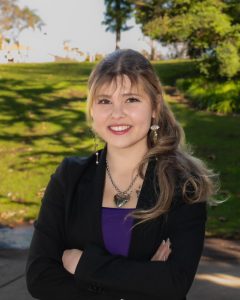Pesident President Hirshman was appointed president of San Diego State in 2011. To document his first 100 days, he started a blog in March of 2011 covering various SDSU-related topics.
His most recent blog post boasts about freedom of speech. The abundant number of protests and open forums, where students voice their opinions and concerns, is a clear indicator of health for President Hirshman’s dedication to free speech.
Although it may be true that speech has not been more free on campus since President Hirshman’s arrival, I’m questioning these intentions — especially considering the way past instances of free speech have been handled at SDSU. This false promise and mirage of free speech is just meant to appease angry students and sweep issues under the rug.
This school year has seen a number of controversial speaker and protests, all in encompassing people from different walks of life — each with a story or demand — who take the opportunity to demonstrate or vocalize on campus.
Events like these give the university good press and the illusion of the ideal college campus: One in which students can actually make a difference, or have an initial say in administrative decisions affecting their schooling.
In the midst of all the protesting going on campus lately, a blog post about free speech comes off as a double-edged sword; it’s recognizing that protests exemplify SDSU’s values of diversity and justice, but it’s also covering up on the instances SDSU has fallen short.
This free-speech topic comes at a perfect time, especially considering last semester’s Student Success Fee controversy. We all remember when President Hirshman agreed to meet with students about the fees even though he had already made his decision.
According to reports made last semester by The Daily Aztec the Campus Fee Advisory Committee voted to approve the $200 student service fee on Feb. 28. This just so happened to be the same day he refused to meet with student protestors who marched Manchester Hall.
Soon after, on March 3, President Hirshman agreed to meet with a select few protesters. However, on that very same day, he sent the approved CFAC recommendation and his personal approval (of the fee increase) to the California State University Chancellor’s Office.
According to an interview with The Daily Aztec, President Hirshman expressed his reluctance to listen to anymore protesters, for their demands proved to be too extreme and moot.
On March 14, President Hirshman officially released his final fee recommendation via blog post — a post that went unnoticed by the student body for several days. According to President Hirshman, the final fee approval was not announced otherwise since other fee changes are not “traditionally announced.”
It is important to note there was an 11-day discrepancy between his final decision and its announcement to the students, who were encouraged to voice their opinion about the fee.
What is the point of encouraging freedom of speech through a public forum if none of it matters in the end?
“Policy indicates … that even though freedom of expression is not an absolute right … any regulation should ‘maximize opportunities, in terms of time, place and manner, for free expression,’” President Hirshman wrote in his blog.
How can free speech be regulated? That is oxymoronic.
He has a point saying there is a time and place for everything, but under the given circumstances, it’s borderline censorship. In this case, students can protest all they want and speak as freely as they wish, as long as they realize that they likely won’t be taken seriously.
“Important considerations also arise when one considers the relationship between freedom of expression and civil discourse or politeness,” he wrote.
So by allowing students to protest while falsely believing they have the potential to actually have input on campus decisions, President Hirshman was just trying to be polite? Or was he only allowing students to protestet as long as the demonstrations remained polite?
Although politeness is clearly not a first amendment requirement, it do understand and agree with the concept, but only to a certain extent. I completely agree that protests are all fine and well until things get chaotic or violent. But on the other end of the spectrum, are protests that are strictly polite really going to get people to listen? At what point does being polite become a moot point?
In the case of students politely protesting against the Student Success Fee, their voices were ignored and their arguments disregarded by President Hirshman.
Apparently, President Hirshman utilized his right to free speech via his blog, to advocate for the free speech of students — regardless of how usless this appears to be. Meanwhile, the voices of students on campus will continue to protest when they see fit, even as their concerns will likely continue to fal on deaf ears.









